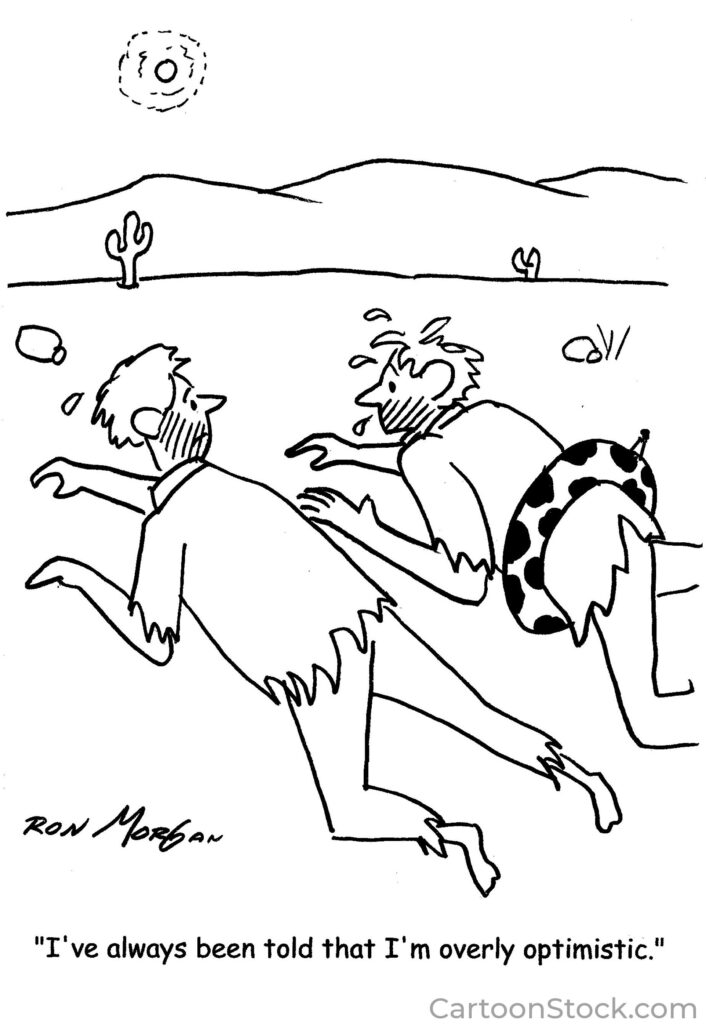
Your mood affects your judgment. When making a decision, if you’re happy at that moment, you may decide differently than if you’re upset. For instance, a judge may issue a severe judgment on a criminal defendant because his roof leaked the night before and ruined his favorite desk. The same judge may issue a lenient judgment because he’s happy about leaving on vacation the next day. (Clever people learn how to use this truth to their advantage: when needing a decision from someone, they’ll wait until the person is in a good mood before asking.)
Generally speaking, a positive mood and disposition leads to a better life and sense of well-being than a negative mood or disposition. And relative to interpersonal relationships, we prefer to spend time with people who are happy and positive rather than those who are grouchy and pessimistic.
But there’s at least one instance in which pessimism can be an asset. Being in a good mood (or by nature positive and optimistic) can make us naive and we can be easily misled. When we view life through rose-tinted glasses, our optimism can lead us to make bad decisions.
So, while it’s better to have a positive outlook on life than a negative one, be aware that positivity has a downside; it can distort our judgment. Be positive but don’t be gullible. Don’t believe everything you’re told. Don’t be swayed by charming people. Don’t be overly influenced by first impressions. Don’t be duped by misleading information.
When it comes to interpreting information and making decisions, skepticism is better than credulity. Unbridled optimism can render you naive and lead to bad decisions.

I’ve never thought of it this way. Thank you.
Neither had I until I wrote the post 🙂 Don
I believe there’s a word that pretty well covers this article. It is DISCERNMENT.
Ed, we cannot get too much of that…
Thanks for taking the time to respond.
Good reminders. And sporting scrapes on my knees and a bruise on my arm should likely also sound the alarm bell that I really can’t do as I could pre-MS. As any good figure skater would do, I customarily and positively just get up and move along.
But facing the reality of MS and no longer being age 20 or 30, okay or 40 or even 50 needs to at some point prevail before I wipe out and really get hurt. Good to replace some things with realistic wisdom. (Well, at least until some MD can swap MS for a double-axel, anyway!)
Jan, I admire you for continuing to pursue life despite having MS. You are a courageous woman.
Thank you kindly!
Very good advice. I will soon be 90, & have learned a lot of this through the years!
Martha. I still remember you singing “Ring the Bells” and Dr. Criswell smiling.
Sitting in front of your grandson while he sings the doxology!
Pretty cool stuff Don!
Thanks, Joel, for responding. Kind regards, Don.